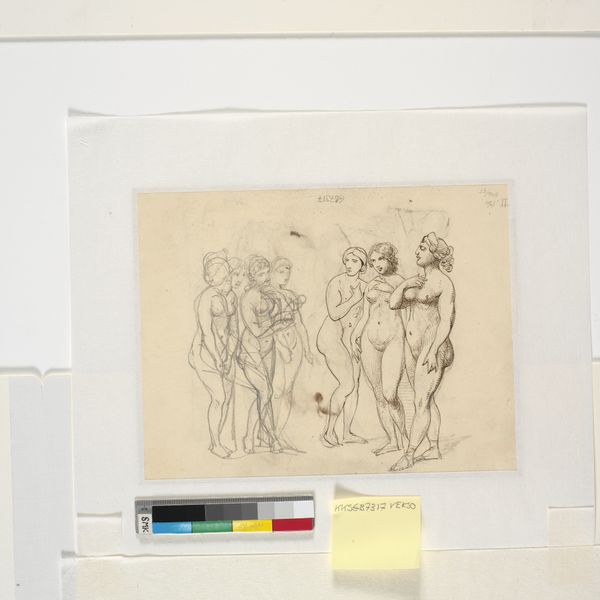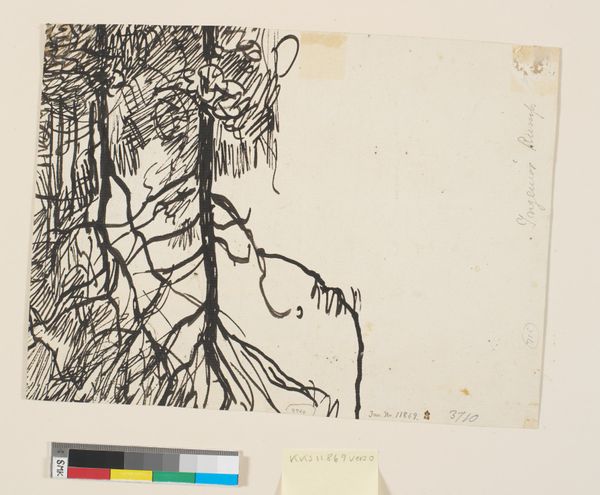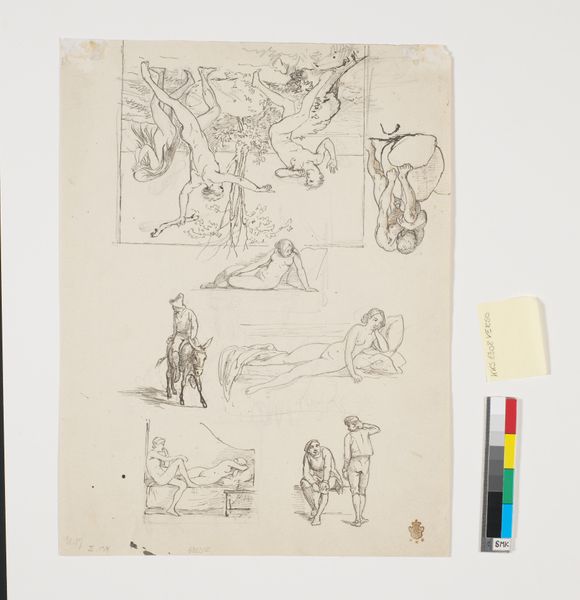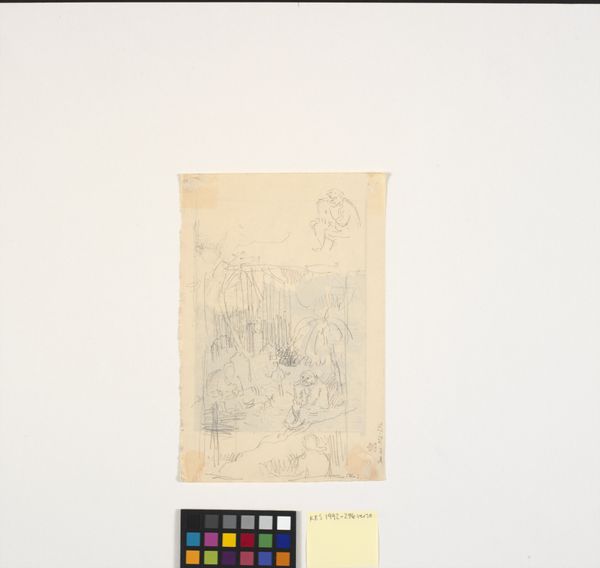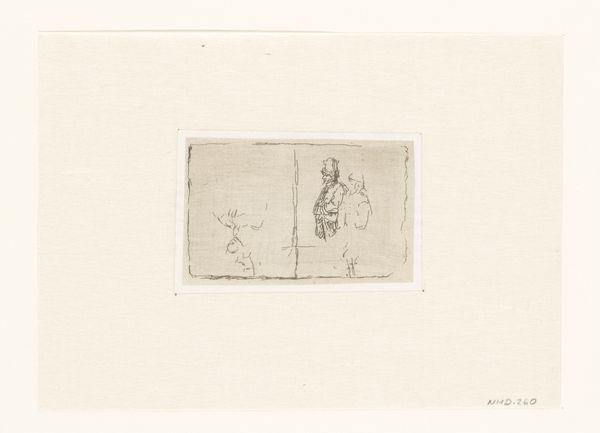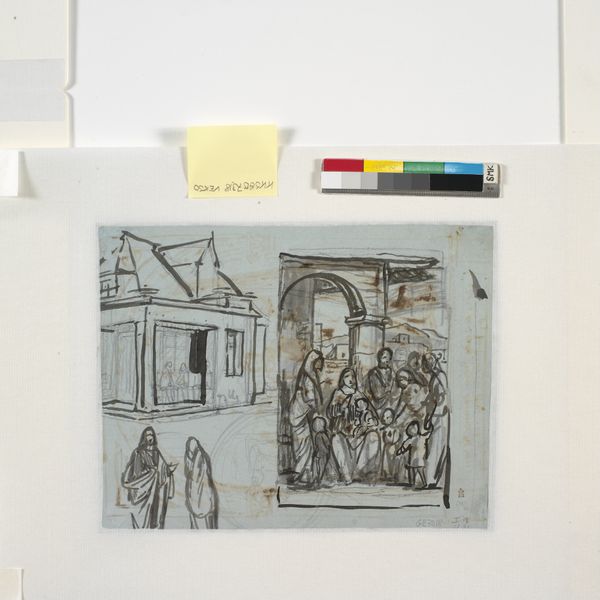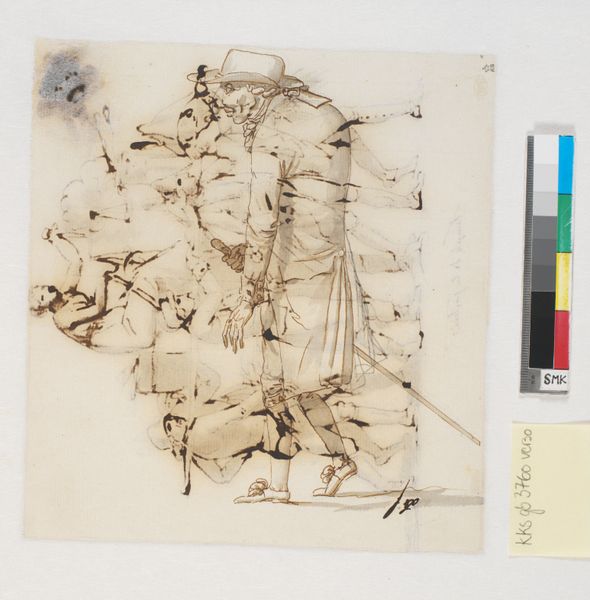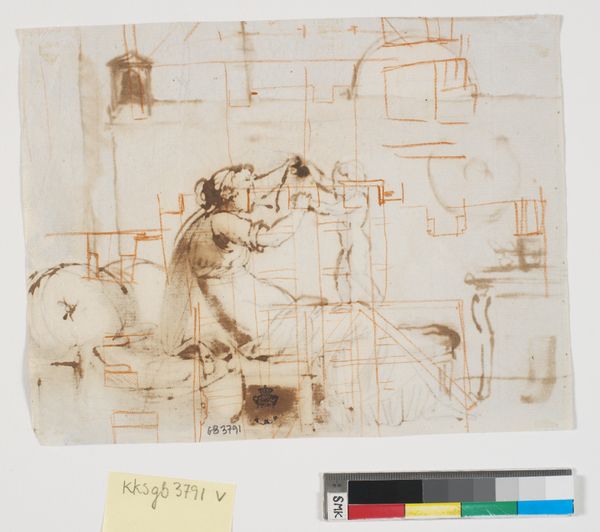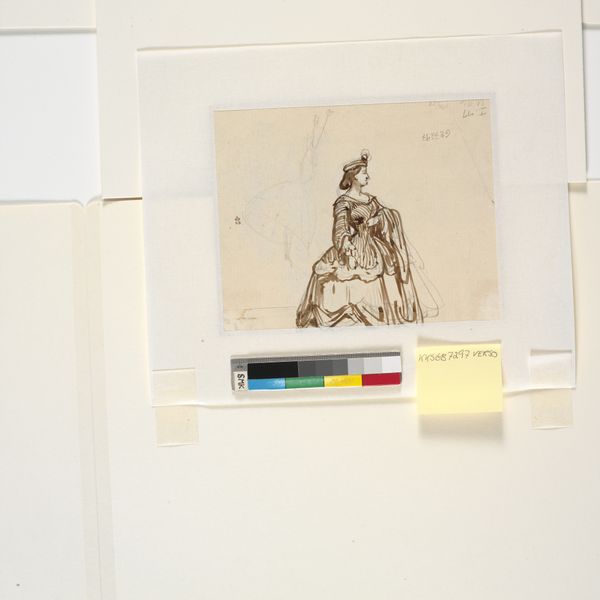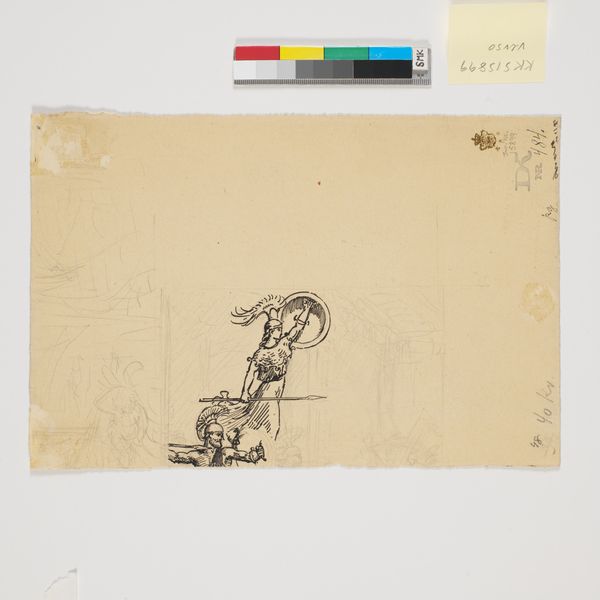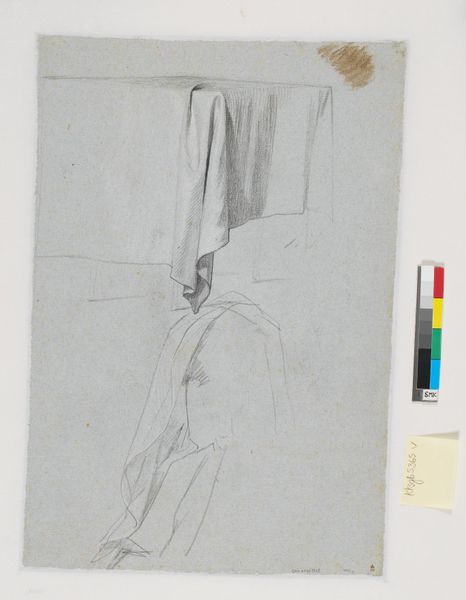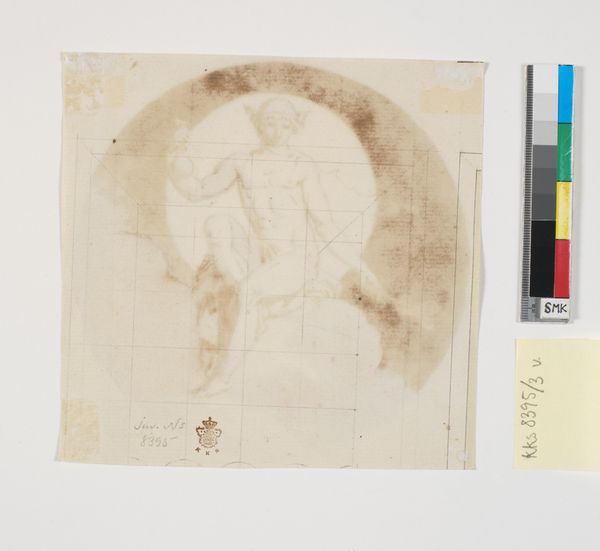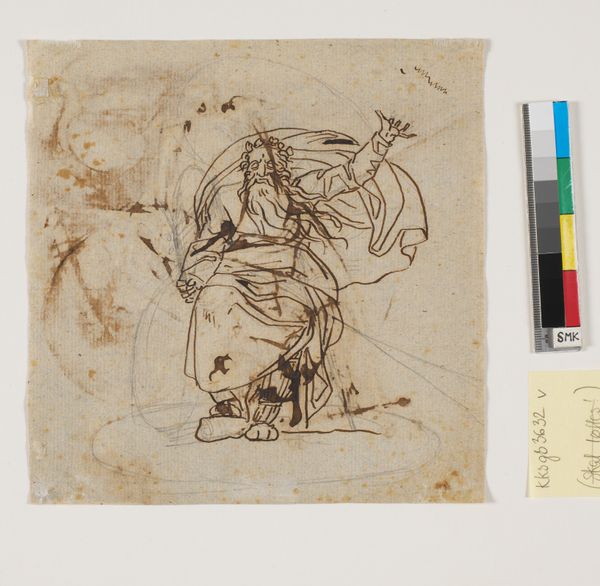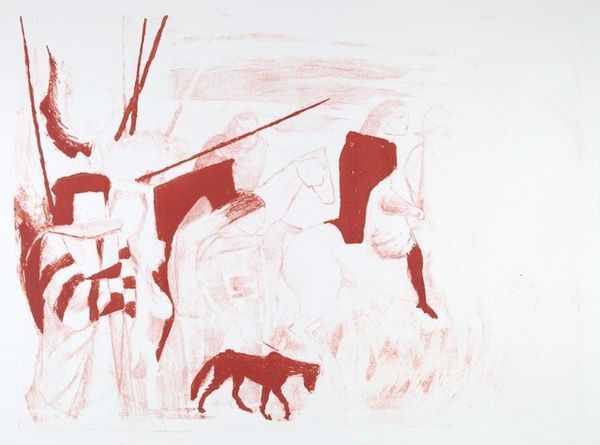
Sancho Pansas og Don Quixotes kroppe til hest 1810 - 1873
0:00
0:00
drawing, pencil
#
drawing
#
narrative-art
#
landscape
#
figuration
#
romanticism
#
pencil
Dimensions: 173 mm (height) x 192 mm (width) (bladmaal)
Wilhelm Marstrand sketched "Sancho Panza and Don Quixote on Horseback," capturing Cervantes' iconic duo. Note how the figures on horseback evoke classical equestrian statues, symbols of power and nobility, yet here, that symbolism is subverted. The horse, traditionally a noble steed, is contrasted with Sancho's donkey, a symbol of peasant life and humility. This juxtaposition echoes in countless works, from Roman emperors on horseback to humble biblical figures on donkeys. Consider the recurring motif of the raised hand. Don Quixote's gesture, perhaps meant to guide or command, mirrors those in ancient oratory traditions. It's a gesture we see in both triumphant leaders and cautionary figures throughout art history. The emotional power of such a symbol is that it triggers a primeval response in viewers. These symbols persist, evolving with each retelling, each image, their meanings layered through centuries of human experience, a testament to their enduring psychological resonance.
Comments
No comments
Be the first to comment and join the conversation on the ultimate creative platform.
